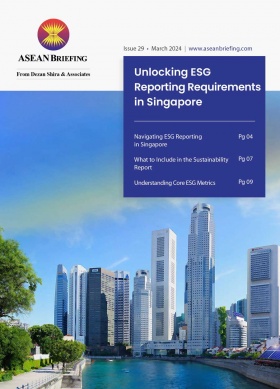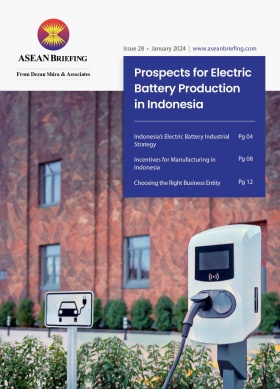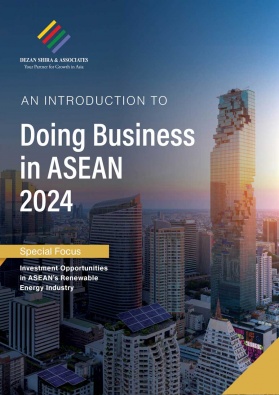Picking the Right Entity for Manufacturing in Indonesia
For foreign investors looking to establish a manufacturing presence in Indonesia, setting up a foreign investment company (PT PMA) is the ideal business entity for such business operations. Further, there are several key advantages of establishing a PT PMA:
- Special financial and non-financial incentives, particularly in pioneer industries;
- Incentives for setting up in special economic zones (SEZs);
- Foreign investors can own as little as one percent and as much as 100 percent of the company (depending on the industry);
- Able to participate in government-sponsored business tenders in the country;
- Ease of processing for business licenses;
- Ease of processing for work permits;
- Lower tax and import duties;
- Simple organization structure (requiring only one director, one commissioner, and two shareholders); and
- Ability to sponsor foreign executives.
Investors should assess their specific needs carefully before deciding which corporate structure to operate from. Using a reliable local advisor is recommended for first-time investors in the country, as they find it easier to remain compliant with applicable regulations.
Set up requirements for a foreign investment company
According to the Investment Coordinating Board of the Republic Indonesia Regulation No. 4 of 2021 (BKPM Reg 4/2021), investors looking to incorporate a PT PMA need to adhere to the following requirements:
- A minimum paid-up capital of 10 billion rupiah (US$696,000) to cover operational activity;
- Appointment of two shareholders (these can be foreign individuals or corporations – the percentage of local involvement will depend on the foreign ownership limitation based on the Positive Investment List); • The appointment of at least one commissioner and a director (these can be held by foreign individuals), although it is advisable to have one local director for the ease of administration; and
- The director will be responsible for running the day-to-day activities of the company.
Set up process for a PT PMA
- Reserve a company name with the Ministry of Law and Human Rights (which should not be similar to the name of other companies or contain vulgar language). Further, the company name shall consist of three words and can be in English.
- Determine the industrial business classification code (KBLI) based on the intended business activities.
- Establish a legal entity with the company’s activities stated in the Deed of Establishment (this must be done with a local notary and the Deed of Establishment will have to be ratified by the Ministry of Law and Human Rights).
- Obtain a taxpayer identification number from the local tax office and a domicile letter from the district government (businesses established in Jakarta do not require a domicile letter).
- Obtain a tax registration certificate through the tax office where the business is domiciled.
- Obtain a Business Identification Number (NIB) by applying through the Online Single Submission (OSS) system. The NIB functions as the company’s import identification number, customs ID, and registration certificate. Further, the NIB will also automatically register your company under the government’s health and social security scheme.
- Some companies may need to apply for additional business licenses (such as for mining and fintech). Business licenses will now be issued based on the assessment of the ‘business risk level’ determined by the scale of hazards a business can potentially create.
Business licensing
After establishing an entity in Indonesia, foreign investors will need to obtain a business license. Government Regulation 5 of 2021 (GR 5/2021) provides the criteria on how business licenses are issued in the country. Business licenses are issued based on the assessment of ‘business risk level’, determined by the scale of hazards a business can potentially create.
To determine the risk level, the government will conduct a risk analysis of each application before deciding on issuing a business license. This will comprise of:
- Identifying the relevant business activity;
- Assessing the hazard level;
- Assessing the potential occurrence of hazards;
- Determining the risk level and business scale rating; and
- Determining the type of business license.
Based on the aforementioned risk analysis, the business activities undertaken by the applicant company will be classified into one of the following types:
- Low-risk businesses;
- Medium-low risk businesses;
- Medium-high risk businesses; and
- High-risk businesses.
Through this risk-based approach, the lower the business risk, the simpler the business licensing requirements will be.
What are the requirements to obtain a business license?
The requirements vary depending on the risk level of the business, with those in the high-risk categories requiring more permits and licenses. The first stage of the process is obtaining an NIB through the OSS system. To register for an NIB, businesses will need to provide the following information:
- Taxpayer number (Nomor Pokok Wajib Pajak– NPWP);
- Business activity code according to the KBLI;
- Business profile;
- The capital structure of the business; and
- The proposed location of the business.
Furthermore, the OSS system will be linked to all relevant ministries, such as the Ministry of Finance, the Ministry of Home Affairs, and the Ministry of Law and Human Rights.
Low-risk business activities
Low-risk business activities are only required to obtain an NIB to commence their operations. In addition to serving as the formal identity of the business, the NIB also serves as a company’s import identification number, as well as the number for registering with the national social insurance program.
Medium-low-risk business activities
Business activities in this category must obtain a NIB and Certificate of Standards before beginning operations. A Certificate of Standards is a statement of the fulfillment of certain business or product standards, which must be filled in through the OSS system.
The NIB allows the business to conduct activities from ‘preparation to the ‘commercial stage’. The preparation stage includes:
- The procurement of tools or facilities;
- Land acquisition;
- Recruitment of manpower
- Feasibility studies; and
- Financing operations for the construction phase.
The commercial stage includes:
- The production of goods/services;
- Distribution of goods/services;
- Marketing of goods/services; and
- Other commercial activities.
Medium-high-risk business activities
For medium-high-risk business activities, companies will need to obtain an NIB and Certificate of Standards. However, the certificate will need to be verified by the central or regional government. A company with an NIB and an ‘unverified’ Certificate of Standards is only permitted to conduct activities deemed in the preparation stage of operations.
Once the central or regional government is satisfied the business has fulfilled the specific business standards, they will issue the ‘verified’ certificate and the company can begin the commercial stage of operations.
High-risk business activities
High-risk business activities will require a NIB and a license to operate. The license will be issued once the business has fulfilled certain conditions and verifications set out by the central or regional government, which may include an environmental impact analysis. The NIB, however, allows the business to conduct activities in the preparation stage of operations. Depending on the products or services being provided, businesses may have to obtain other supporting licenses to conduct commercial activities regardless of what risk level their activities are classified as. The corporate establishment and licensing process is part of government reforms aimed at improving Indonesia’s investment climate.
Webinar – Doing Business in Indonesia 2024: Elections, Industry Trends & Capital City Relocation
Live Session for Asia: March 27, 2024
10 AM Brussels / 4 PM Jakarta / 5 PM China
Rebroadcast for North America: March 27, 2024
9 AM Los Angeles / 12 PM New York / 6 PM Brussels
Join us for a recap of Indonesia’s economic performance in 2023, key industry trends in 2024, implications of the 2024 general election results for businesses and updates, and Indonesia’s new capital city, Nusantara.
This webinar is FREE of charge.
Register now for Indonesia’s Live Session
Register now for North America’s Rebroadcast
About Us
ASEAN Briefing is produced by Dezan Shira & Associates. The firm assists foreign investors throughout Asia and maintains offices throughout ASEAN, including in Singapore, Hanoi, Ho Chi Minh City, and Da Nang in Vietnam, in addition to Jakarta, in Indonesia. We also have partner firms in Malaysia, the Philippines, and Thailand as well as our practices in China and India. Please contact us at asean@dezshira.com or visit our website at www.dezshira.com.
- Previous Article Malaysia’s Revised Residency Program: Tackling Cost Concerns
- Next Article The ASEAN-Australia Special Summit 2024: An Overview







